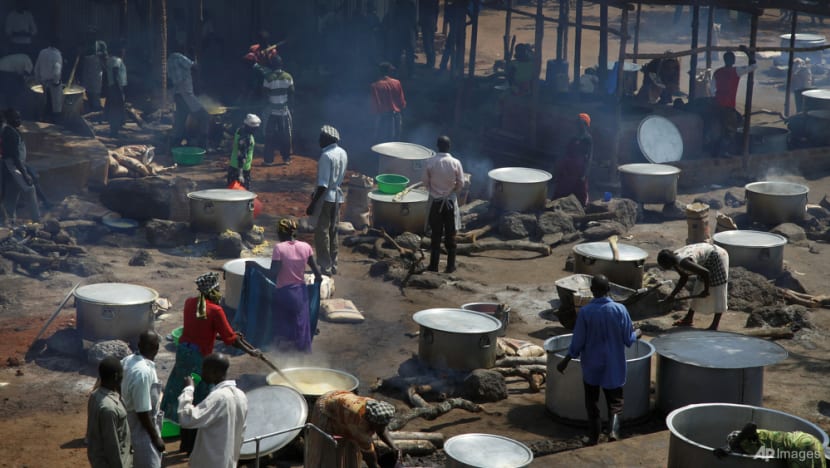UN refugee boss urges donors to fill gap left by Trump aid freeze

FILE -Refugees prepare food including maize porridge donated by USAID and known locally as posho, during the visit of U.N., Aug. 29, 2016. (AP Photo/Stephen Wandera, File)
Filippo Grandi, the UN high commissioner for refugees, said he had asked European Union members and other countries with flexible aid procedures to accelerate their contributions to mitigate the effects of the US freeze.
"Otherwise, we face a cash flow crisis that we cannot afford," he said in an interview in Brussels on Wednesday (Feb 5). "We deal with life-saving situations where we cannot interrupt aid for too long."
He said some countries had promised earlier contributions and he was continuing to appeal for more.
Soon after taking office on Jan 20, President Donald Trump ordered a sweeping review of almost all US foreign aid
to ensure it aligned with his "America first" policies.
The United States is by far the largest donor to the refugee agency, UNHCR, which helps millions of people around the world fleeing conflict and persecution.
Last year, the US gave more than US$2 billion in donations to UNHCR - about 40 per cent of the total the agency received.
Following the US move, Grandi ordered a clampdown on UNHCR spending while the agency assesses its impact.
"The fact that they froze several hundred million dollars of already agreed contributions (meant) we had to do this freeze," he said. "I'm actually going to speak to my colleagues tomorrow and continue to recommend that we are prudent on this."
US EXEMPTIONS
After the initial US decision, Secretary of State Marco Rubio issued further orders allowing exemptions to the freeze for life-saving aid and emergency food assistance.
Grandi said he saw those moves as positive signs that the new administration wanted to continue humanitarian aid.
He said he could not estimate how much UNHCR aid was affected by the freeze.
"We've received letters of exemption for some countries and some activities. Now we're trying to understand how those exemptions are going to liberate the funds," he said.
But he said unless other funding came soon, the curbs the agency had to put in place would "very soon ... have an impact."
"We think it's in the interest of the United States to be a strong humanitarian power," Grandi said.
"This is important not only for the people that benefit from it but also in terms of the authority, security, credibility of the United States around the world."















